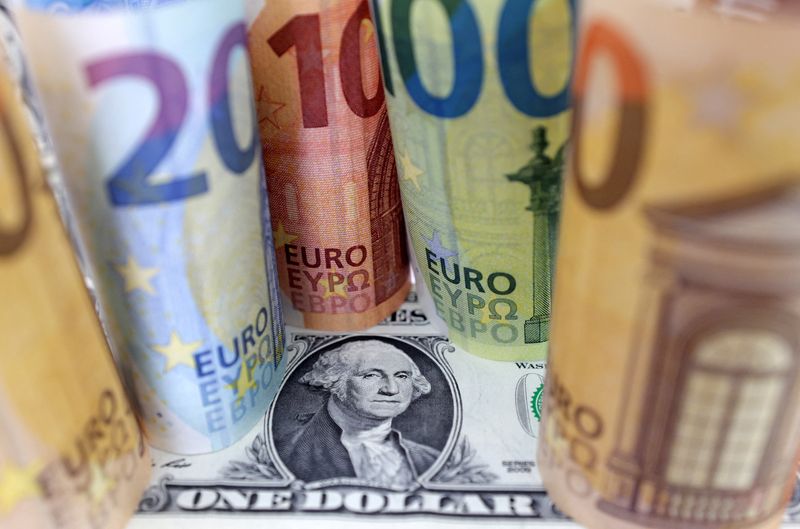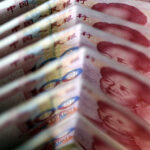NEW YORK (Reuters) -The U.S. dollar advanced against its peers on Wednesday, hitting its highest level in two years, after the Federal Reserve delivered a widely expected interest rate cut while also indicating it would slow the pace of its monetary policy easing cycle.
The Fed lowered its benchmark policy rate by 25 basis points to the 4.25% to 4.50% range, with officials signaling they would likely pause future rate cuts next year given a stable labor market and inflation. The yield on benchmark U.S. 10-year notes rose 6.1 basis points to 4.446%, hitting a four-week high.
“The Fed increased its core inflation forecast and adjusted the dot plot; so rate cuts are being priced out and I think we have one more rate cut priced in for next year and that’s less than it was before,” said Axel Merk, president and chief investment officer at Merk Hard Currency Fund in Palo Alto, California.
“So the initial take by the market is it’s hawkish and that it’s dollar-positive.”
The dollar strengthened 0.89% to 0.90020 against the Swiss franc, after reaching as high as 0.90150 – its highest level since July. The euro was down 1.17% at $1.03695, dropping to a three-week low.
The U.S. dollar index, which measures the greenback against six rivals, rose to as high as 108.260, hitting its highest level since November 2022. It was last up 1.08% at 108.08.
Fed Chair Jerome Powell said in his press conference that it was “appropriate to move forward cautiously and look for progress on inflation”, adding that the labor market is softening.
The greenback jumped to a 15-1/2-year high versus the South Korean won, hitting 1,454.41 – the highest since March 2009. It was last up 1.03% at 1,452.19 per dollar.
The dollar strengthened 0.78% to 154.63 against the Japanese yen, hitting a three-week high. The Bank of Japan is expected to leave rates unchanged on Thursday.
The Bank of England is also expected to hold rates steady on Thursday. Sterling edged lower versus the euro and against the dollar following the Fed’s decision. The currency weakened 0.98% to $1.25860, dropping to a three-week low.
Sweden’s Riksbank is widely expected to cut rates by as much as half a point, while the Norges Bank is set to leave rates unchanged. The Norwegian crown dropped 1.54% to $11.3677, while the Swedish crown weakened 1.38% versus the dollar to 11.1087.
The Australian dollar slid to $0.62225, its lowest since October 2022. New Zealand’s kiwi touched a fresh two-year low of $0.56540.
The offshore yuan traded at 7.321 per dollar on Tuesday, holding steady near a 13-month low against the dollar.
Bitcoin fell as much as 5% after Powell said the Fed has no desire to be involved in any government effort to hold large amounts of the world’s largest cryptocurrency. It fell 5.34% to $100,734.




